
What Age Is Acne the Worst? Managing Acne at Different Stages
- Does Salicylic Acid Darken Skin? Common Misconceptions Explained
- At what age is acne the worst?
- Why is acne worse during teenage years?
- How to manage acne at different ages
- Factors that affect acne severity across ages
- Conclusion
- FAQs
Acne doesn’t play fair. It always seems to show up at the worst possible moment, such as before a big event, on the day of a first date, or just when you thought your skin had finally cleared up. Though often considered a teenage dilemma, the truth is far more complex and frustrating. Acne has a knack for lingering or reappearing well into adulthood, leaving many to wonder: At what age is acne the worst? How can we manage it at each stage of life? Read on to find out.
That's where this blog post comes in — we'll be delving into this very question, debunking what's real from what's not, and sharing tips to ensure you're using this potent beta hydroxy acid (BHA) safely. We’ll also explore the main causes of skin darkening in some users and how to prevent it in the first place.
At what age is acne the worst?
Acne can strike at any age, but it tends to hit hardest during specific life stages due to fluctuating hormones, lifestyle changes, and skin sensitivity. Understand how acne manifests at each stage of life to craft a smarter skincare approach.
Teenage years (12–19 years)
This is the classic peak of acne trouble. During puberty, androgen levels spike, causing the sebaceous glands to produce more sebum (oil). This excessive oil, when mixed with dead skin cells and bacteria, clogs pores and leads to blackheads, whiteheads, and inflamed pimples. Teenage pimples are common for both boys and girls, but boys may experience more severe breakouts due to higher testosterone levels
Early adulthood (20s–30s)
Many are surprised to find acne lingering or even starting well into their 20s and 30s. This is often hormonal acne, appearing around the chin and jawline. Triggers include fluctuating hormones (especially around menstrual cycles), stress, diet changes, and inconsistent skincare routines. Adult acne can be persistent and often requires a different treatment approach than teenage acne.
Late adulthood (40s and beyond)
Acne in your 40s, 50s or even 60s is less common but not unheard of. Many women experience hormonal acne during this age. Medications and skincare products can also irritate mature skin, leading to breakouts that may look different from adolescent acne.
Why is acne worse during teenage years?
The teenage years mark the body’s most dramatic hormonal upheaval. When puberty hits, the increase in androgens prompts the sebaceous glands to ramp up sebum production. This oily layer traps dirt, dead skin, and bacteria in pores, resulting in inflamed blemishes. Teen skin also regenerates faster, sometimes leading to clogged pores if exfoliation isn’t balanced. Moreover, teenagers may lack knowledge about proper skincare, often resorting to over-washing or using harsh products that aggravate the condition.
Factors that affect acne severity across ages
Acne isn’t just about age. Several key factors can amplify or reduce its severity at any point in life.
Hormonal changes
Hormones play a huge role in skin behaviour. Fluctuations can increase oil production and lead to clogged pores, which is why breakouts often coincide with biological milestones like puberty and menopause. It’s also extremely common for women to experience pimples in early pregnancy.
Genetics
If your parents struggled with acne, there’s a higher chance you might too. Genetic predisposition can affect pore size, oil production, and inflammation response. All of these are contributors to acne.
Skincare & hygiene
Using products not suited to your skin type or over-exfoliating can strip the skin’s barrier, triggering breakouts. Poor hygiene or touching your face frequently may introduce bacteria, further exacerbating acne. It’s also important to avoid popping or squeezing pimples in an attempt to get rid of them faster. If you really want a quick solution, try a product like the Overnight Acne Spot Corrector
Diet & lifestyle
Studies suggest that high-glycaemic foods (like white bread and sugary snacks), dairy products, and processed items may worsen acne. A balanced diet rich in antioxidants, healthy fats, and hydration supports better skin health.
Stress levels
Stress elevates cortisol, a hormone that signals the skin to produce more oil. It also slows down the skin’s healing process, making existing acne last longer and increasing the risk of post-acne marks or scarring
How to manage acne at different ages
So, does salicylic acid darken skin on face? Technically, the ingredient isn’t a pigmentation agent in itself. When it's misused, though — applied more times than recommended and when it's not used in conjunction with proper sunscreens — it sets up a recipe for temporary skin darkening known as PIH.
Teenage acne
The goal is to keep pores clear and skin balanced without causing irritation.
- Use a gentle foaming cleanser twice daily.
- Incorporate products with salicylic acid or benzoyl peroxide
- Opt for non-comedogenic (non-pore-clogging) hydration products like the Acne Care & Healing Gel Moisturiser with Tea Tree & Cica.
Adult acne
For adults, the root cause is often internal. So, treatment needs to address both the surface and the underlying issues.
- Consider hormonal evaluation, especially for women
- Manage stress with exercise, meditation, or counselling.
- Use serums with acne-fighting ingredients like the Acne & Oil Control Intense Serum with 2% Salicylic Acid
Mature skin acne
Older skin requires a delicate balance of treatment and hydration
- Use mild cleansers like the Clearing & Calming Acne Face Wash.
- Avoid alcohol-based toners or scrubs that dry out the skin.
- Speak to a dermatologist for treatment suited to ageing skin.
Conclusion
Acne is more than a teenage nuisance. It’s a skin condition that can span decades, affecting confidence and comfort at every life stage. From puberty to menopause, understanding the biological shifts behind acne empowers us to treat it with insight, not frustration. Whether you're dealing with your first breakout or your last, there's always a better way to care for your skin with patience, consistency, and the right approach.
FAQs:
At what age does acne start to get better?
Acne often begins to improve in the early to mid-20s, once hormonal levels stabilise and skin matures. But some individuals may continue experiencing breakouts into their 30s or beyond.
Why do some people have acne even in their 30s or 40s?
Adult acne can be linked to hormonal imbalances, stress, or underlying health issues like PCOS, and may also be triggered by skincare routines, diet, or certain medications
Can teenage acne be prevented?
While genetics and hormones can't be avoided, proper skincare, a balanced diet, and good hygiene can significantly reduce the severity and frequency of teenage acne.
Do pimples go away after 18?
For many, acne begins to lessen after age 18, but it's not uncommon for breakouts to continue into the 20s and even later, depending on individual factors like hormones and lifestyle.
Is it bad to have acne at 20?
It’s not at all a bad thing. Many people in their 20s experience acne due to stress, lifestyle changes, and fluctuating hormones. With the right skincare and treatment, it can be effectively managed.
What is the maximum age for acne?
There is no set age limit. While acne is most common in teens and young adults, it can persist or recur into one's 40s, 50s, and occasionally even 60s, especially in women undergoing hormonal changes.


























































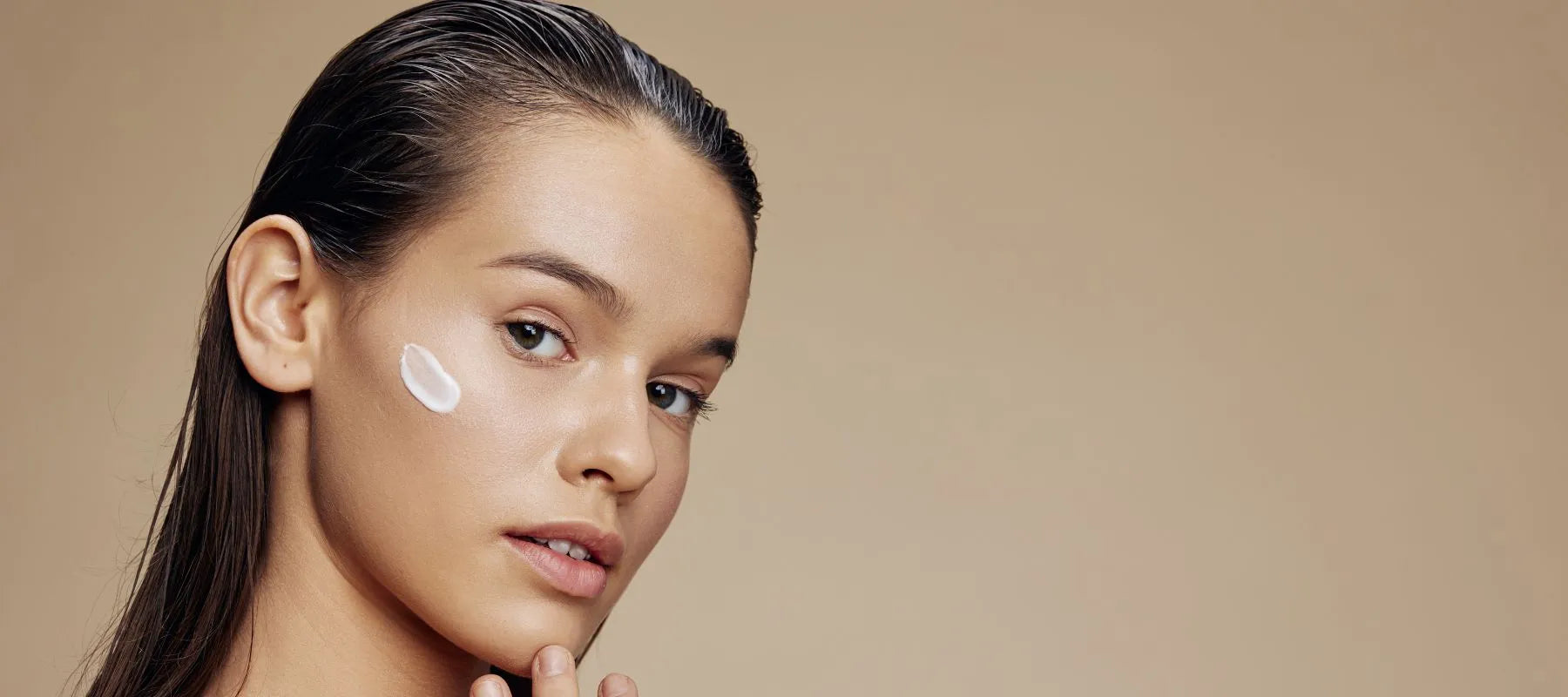

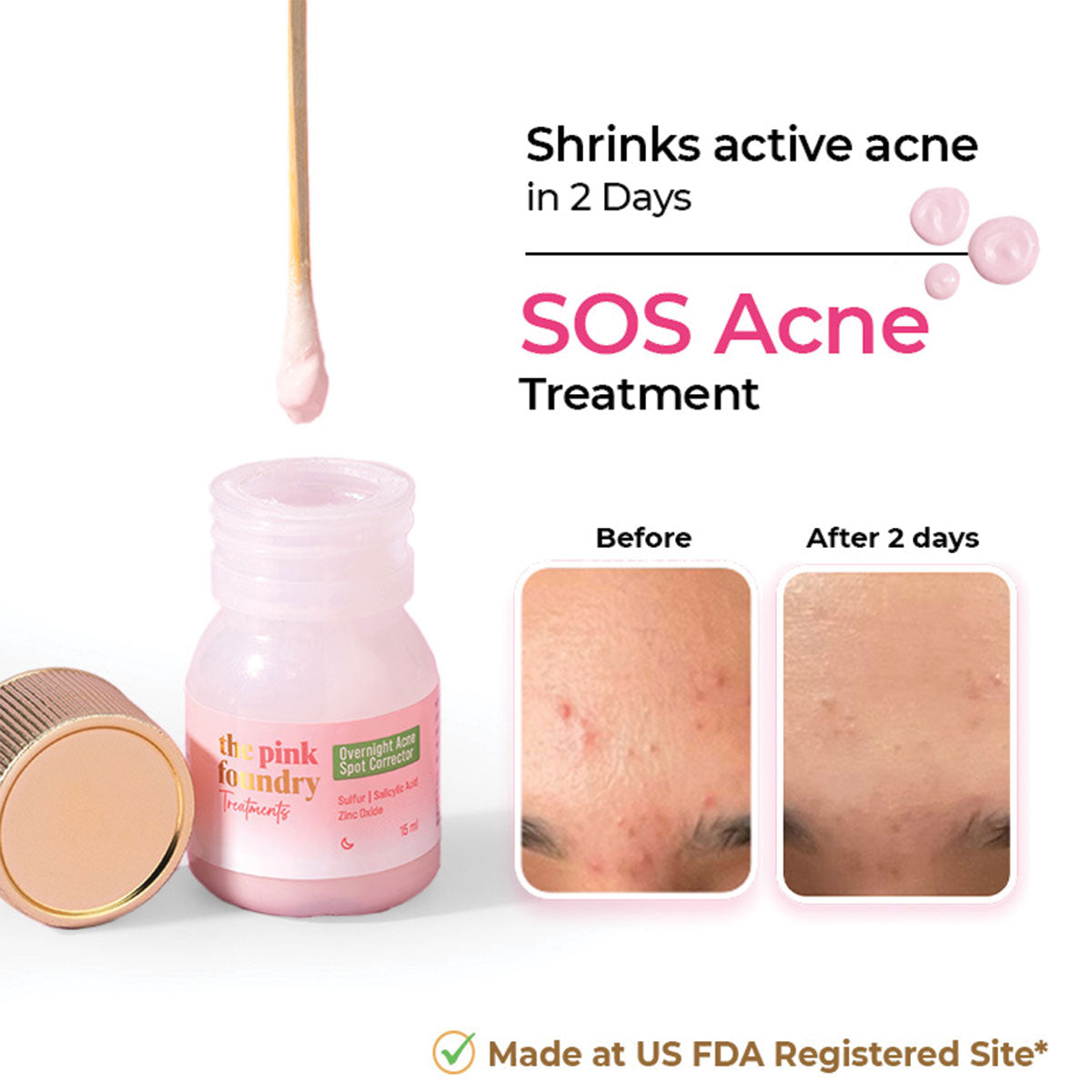
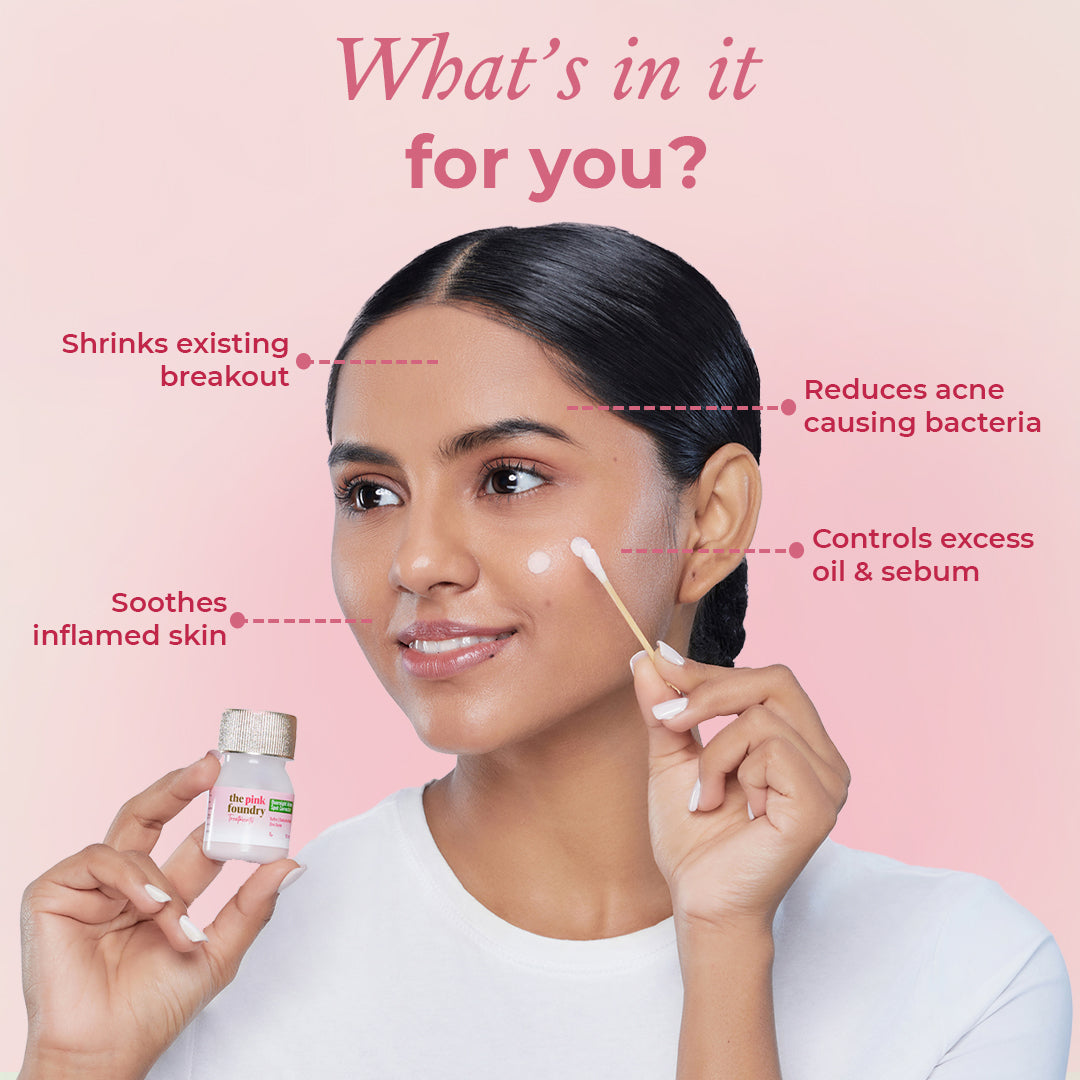


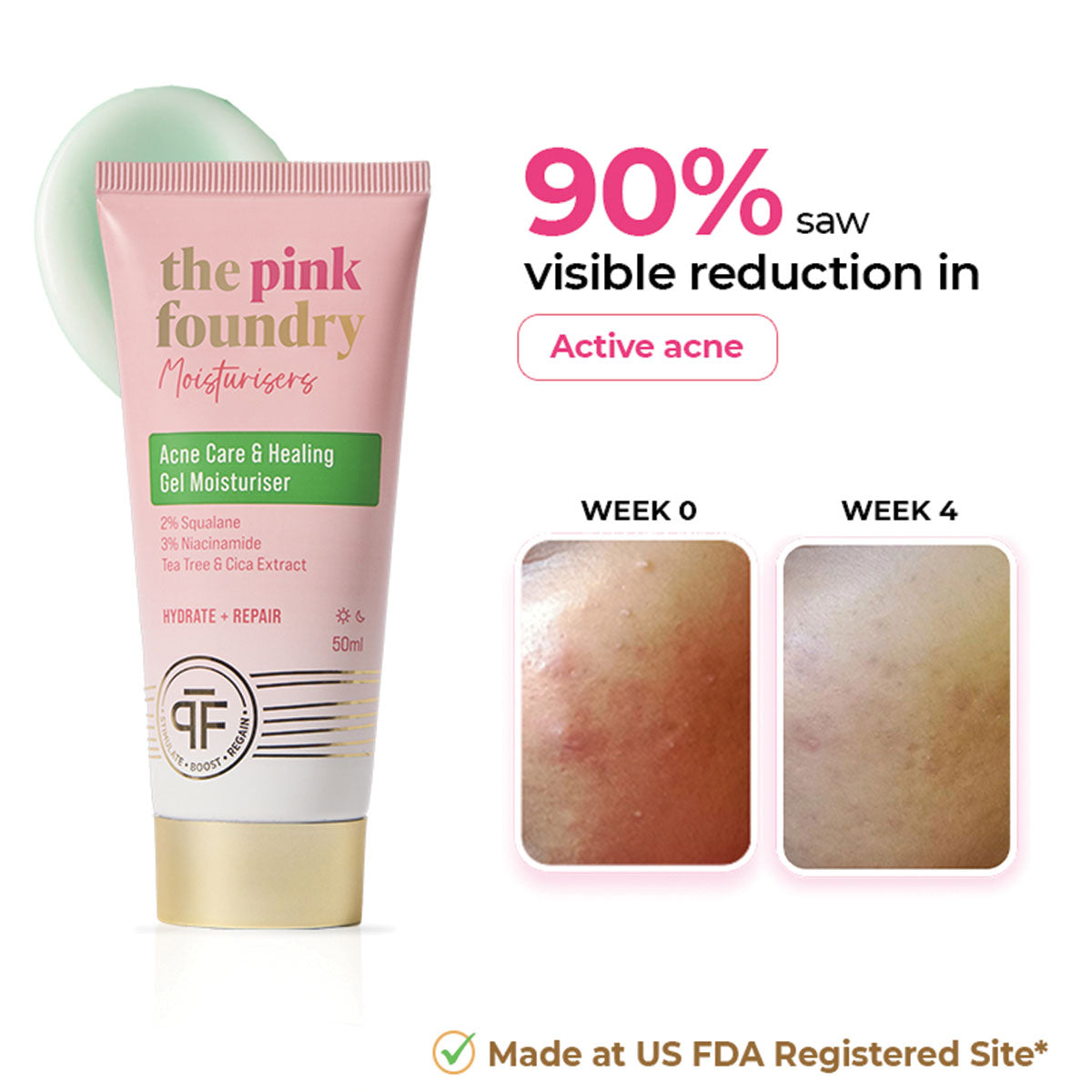
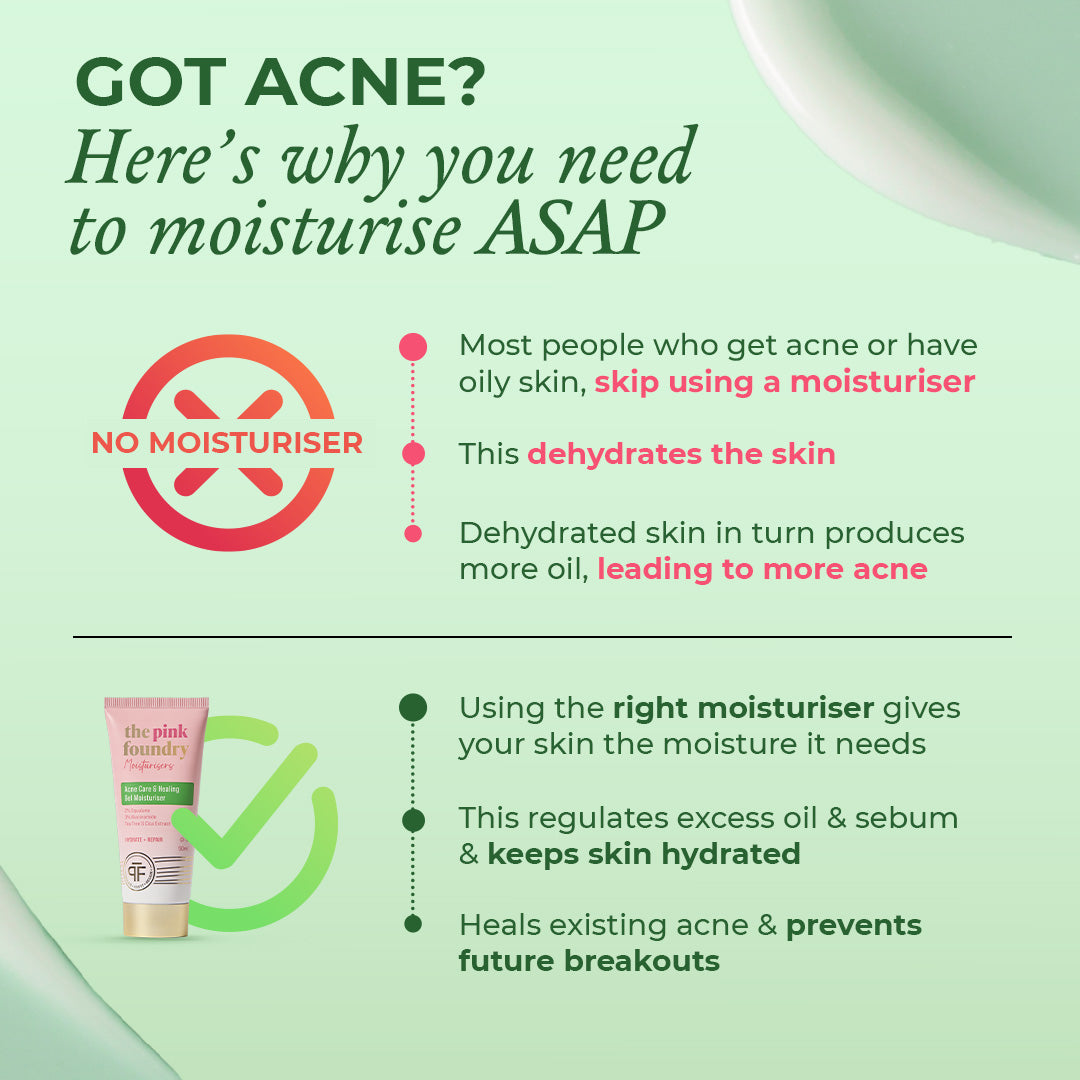










Leave a comment
This site is protected by hCaptcha and the hCaptcha Privacy Policy and Terms of Service apply.